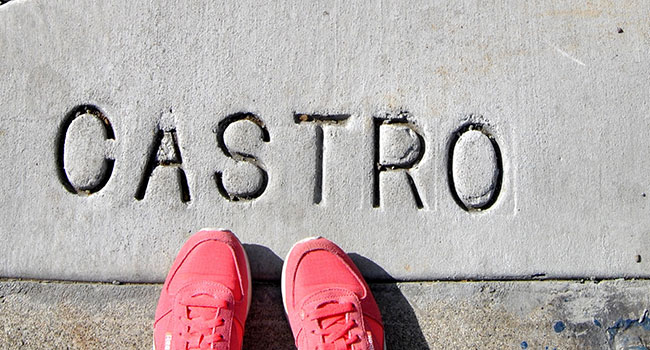 I never liked Fidel Castro. Not even a little bit.
I never liked Fidel Castro. Not even a little bit.
Part of my aversion had to do with a general antipathy towards 20th century dictators, especially charismatic ones. They were, after all, the most dangerous.
Intelligent people who waxed apoplectic over the alleged authoritarian tendencies of Stephen Harper and wet the bed over the prospect of Donald Trump, gush like fanboys over their beloved el Comandante. Logically, it beggars belief.
It’s true that Castro wasn’t the worst of the 20th century’s dictators. It’s also true that, viewed in isolation, some of the things he did were praiseworthy. Of course, the same can be said for most dictators.
| TRUDEAU SCANDALS (Partial list only) |
| Something changed for the Liberals the night of ‘elbowgate’ By Warren Kinsella |
| Liberals’ moving expenses apology bogus By Michael Taube |
| Did the government pressure Lucki and the RCMP to do their bidding? By Michael Taube |
| My Canada does not include Alberta – Trudeau By Michael Taube |
| Khadr settlement defies due process, insults Canadians By Maddie Di Muccio |
| Trudeau’s Asian trip a diplomatic and trade disaster By Maddie Di Muccio |
| A #MeToo cloud hangs over Justin Trudeau By Michael Taube |
| Jody Wilson-Raybould’s deeply Canadian courage By Peter Stockland |
| Trudeau tries to weasel his way out of SNC scandal By Alec Bruce |
| Liberals swept Norman under the rug well before election By Brian Giesbrecht |
| Racist photos confirm Trudeau is a bare-faced charlatan By Doug Firby |
| For a complete list of Trudeau’s Scandals, click here |
Castro’s apologists typically point to gains in areas like health and literacy. These, we are told, outweigh the curbs on free speech, the thousands of political prisoners, the hundreds of thousands of refugees, the imposed government, and the intermittent brutality. This bad stuff is rationalised as the necessary price for progress.
But there are two conceptual problems with this line of argument, both of which derive from a lack of context.
The first problem has to do with the state of pre-Castro Cuba. Contrary to apologist claims, it wasn’t a hellhole. In Latin American terms, it was actually quite developed.
Whether viewed from the perspective of average income, literacy, life expectancy, infant mortality, or per capita ownership of such consumer appurtenances as automobiles, television sets and telephones, Cuba was already close to the top of the Latin American tree. It also had a growing middle class and strong trade unions.
And things were generally getting better, not worse. For instance, infant mortality had declined from 111 per thousand in 1928-32 to 35 per thousand in 1958.
Yes, there were inequalities, particularly between urban and rural areas. Poverty in the latter could also be of the most grinding sort. In the assessment of Latin American specialist Mark Falcoff, “urban Cuba had come to resemble a Southern European country (with a living standard as high or surpassing that of France, Spain, Portugal and Greece) while rural Cuba replicated the conditions of other plantation societies in Latin America and the Caribbean.”
The second problem is the way in which tangible progress in other Latin societies is ignored. Cuba’s performance isn’t unique. Chile and Costa Rica – both democracies – have infant mortality rates close to Cuba’s and life expectancy rates that are marginally superior.
While 1959 Cuba could have benefited from social reform, it didn’t need a flamboyant dictator. Someone diligently dull like Clement Attlee, the UK’s post-Second World War Labour prime minister, would have sufficed quite nicely.
Another thing that earns Castro praise is his capacity to stand-up to the United States. That’s putting it mildly. A more accurate description would be that he took every opportunity to stick his finger in Washington’s eye.
In the process, though, he simply switched patrons. Rather than being beholden to the Americans, Cuba became dependent on the Soviet Union. So when Soviet communism collapsed, the sudden loss of the related subsidies – estimated to have been as high as 20 per cent of Cuba’s GNP – caused major hardship.
But that wasn’t the only demonstration of dependence. At the critical moment in the 1962 Cuban Missile Crisis, Castro found himself cut out of the decision-making. And he wasn’t pleased with the ultimate resolution between Moscow and Washington.
However, reading Nikita Khrushchev’s letter to Castro on October 30, 1962, you get the sense that the displeasure was mutual.
Several days earlier, Castro had suggested that an American invasion of Cuba should be met with a Soviet nuclear attack. Khrushchev’s response conveyed an obvious dismay: “In your cable of October 27 you proposed that we be the first to carry out a nuclear strike against the enemy’s territory. Naturally you understand where that would lead us. It would not be a simple strike, but the start of a thermonuclear world war.”
At the end of the day, perhaps the best assessment of Castro came from his daughter Alina. “When people tell me he’s a dictator, I tell them that’s not the right word. Strictly speaking, Fidel is a tyrant.”
If someone had explained that to Justin Trudeau, maybe we’d have been spared his embarrassing genuflection to the memory of el Comandante.
Troy Media columnist Pat Murphy casts a history buff’s eye at the goings-on in our world. Never cynical – well perhaps a little bit.
The views, opinions and positions expressed by columnists and contributors are the author’s alone. They do not inherently or expressly reflect the views, opinions and/or positions of our publication.

